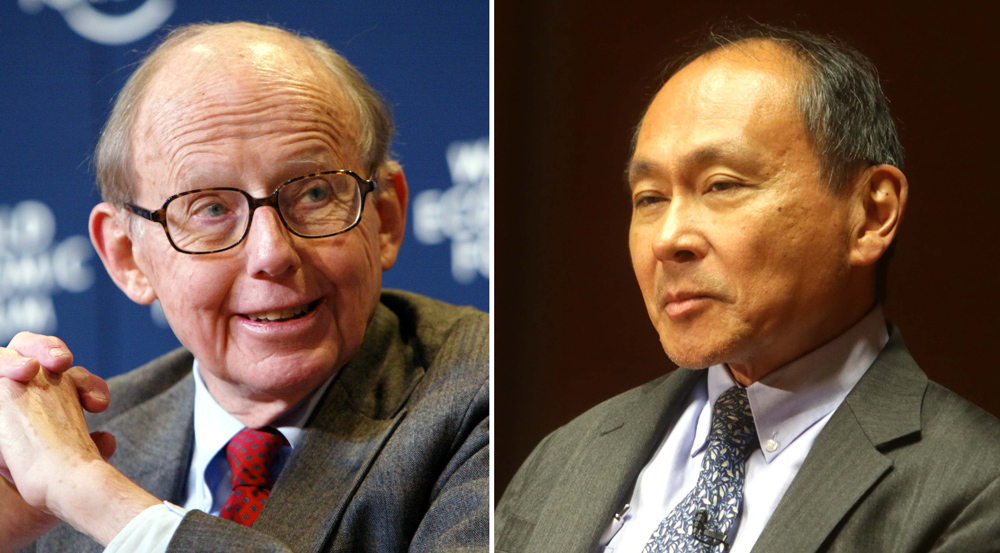|
In this mailing:
- Judith Bergman: Denmark: "In
One Generation, Our Country Has Changed"
- Jan Keller: The Peaceful Takeover
of Europe
by Judith Bergman • January 16,
2019 at 5:00 am
- The decision to send
the criminal inhabitants of the asylum center to the
uninhabited island of Lindholm caused great relief in Bording
-- an element the international press appears to have missed.
Clearly, the right of law-abiding citizens to live in peace
does not count for much on the scale of international moral
outrage.
- Significantly, the
outraged international press did not offer any answers to the
legitimate question of what governments are supposed to do
with hardened criminal asylum seekers, who pose a genuine
threat to their surroundings and have been sentenced to
deportation, but cannot be deported from the country because
of international human rights obligations.
- The problem is far
from a uniquely Danish one: virtually all European countries
have signed international human rights conventions that leave
them with the same dilemma.
- The country did not
just "change". Danish politicians, with their
policies, changed it.

In his
recent New Year's speech, Danish Prime Minister Lars Løkke
Rasmussen mentioned that Muslim parallel societies constitute a
problem and that immigrants must learn to put secular values over
religious ones. He just did not say how he planned to address all
that. Pictured: Rasmussen in October 2018. (Photo by Rune Hellestad/Getty
Images)
Denmark made international headlines in late
November 2018, when the Danish government announced a plan to send
certain asylum seekers to the small, uninhabited island of
Lindholm. The international outrage was intensified when it came to
light that the island currently houses a research center for
contagious animal diseases; that the ferry which the asylum seekers
will be able to take to the mainland during the day (it does not
operate in the evening) is named "Virus"; and that the
asylum center will be accompanied by a constant police presence on
the island.
The group of asylum seekers meant to live in
Lindholm consists of criminals of various sorts, including those
who have been sentenced to be deported from Denmark, those who are
considered a security threat to Denmark, and so-called
"foreign warriors".
by Jan Keller • January 16, 2019
at 4:00 am
- The concept of the
clash of civilizations assumes that there is a conflict
between religions. This view often appears to be true where
Islam is concerned; the religious aspect of Islamism appears
to be a powerful motivator. That desire illustrates how deeply
flawed were the sociological and political theories of
modernization, according to which the entire world eventually
would undergo a process of enlightenment, similar to Europe's.
- Whereas traditional
Marxists believed that a dictatorship of the proletariat would
result in a classless society, the neo-Marxists apparently
believe that a dictatorship for the benefit of minorities will
result in a society of absolute freedom for all.
- To this end, they
seem to think, it is necessary to build an anti-discrimination
bureaucracy to break the domination of the majority over the
minority and force the majority to demand an end to its own
privileged position. It is not enough for the majority to
tolerate otherness; it must embrace and love it.

The vast
majority of Western politicians and members of the media today
appear to be guided by the idea that it is better to be wrong about
Francis Fukuyama's The End of History than to be right about
Samuel Huntington's The Clash of Civilizations. Pictured:
Huntington (left) and Fukayama. (Image sources: Huntington - World
Economic Forum/Wikimedia Commons; Fukayama - Fronteiras do
Pensamento/Wikimedia Commons)
The vast majority of Western politicians and members
of the media today appear to be guided by the idea that it is
better to be wrong about Francis Fukuyama's The End of History
than to be right about Samuel Huntington's The Clash of
Civilizations. This seems simply an abbreviated expression of a
widespread unwillingness, or inability, to call things by their
real names. Let us examine the reality that is so hard for many
members of liberal societies to acknowledge, and which explains why
Huntington's diagnosis of the current era is far more fitting than
Fukuyama's.
Huntington's working hypothesis for analyzing
current events basically follows German sociologist Max Weber's
"sociology of civilizations." Yet the term "shock of
civilizations" was coined in 1957 by the historian Bernard
Lewis, in the aftermath of the Suez crisis.
|































No comments:
Post a Comment